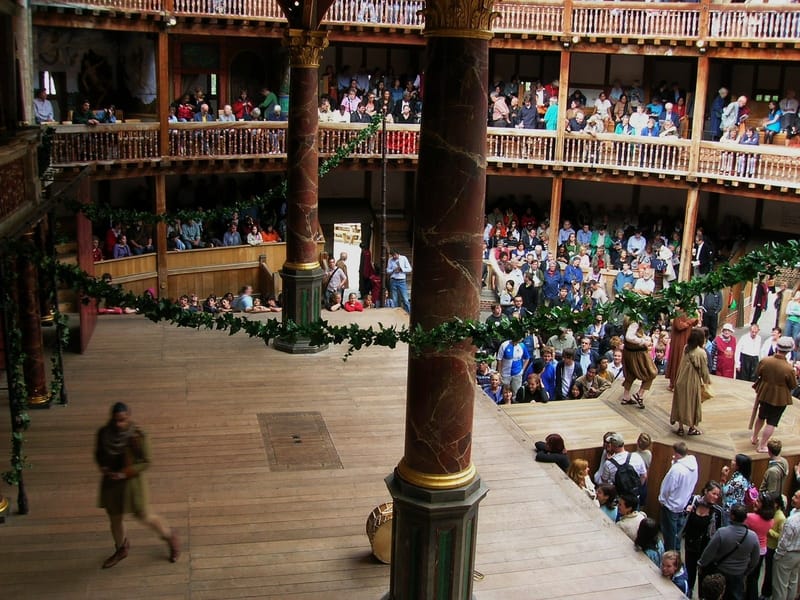SHAKESPEARE WORKSHOPS

Using RSC practices, I aim to make strong connections between the rehearsal room in which RSC actors and directors work and the classroom, where young people explore in a workshop setting the shared discovery of bringing Shakespeare to life.
To do this successfully they need:
- to have a deep understanding of the text
- to get the language ‘in the body’
- to speak it as if it is ‘fresh-minted
- to be open to a range of interpretive possibilities and choices
Students achieve this through active and playful strategies, connecting mind, voice and body to explore complex language confidently and openly.
The workshop focuses on building a spirit of one group with a shared purpose – this is about us rather than me. I will do this with games that warm up our brains, voices and bodies, and we continue to build this spirit through shared, collaborative tasks that depend on and value everyone’s contributions. The ways in which I work encourage students to discuss, speculate and question: there is rarely one right answer.
At the heart of the pedagogy is the idea of young people encountering Shakespeare as fellow artists. Working with Shakespeare’s language in the same ways that actors do, they can create outcomes that offer real insight into the text, in which they can take great pride, and which are often genuinely beautiful. For the actor in the rehearsal room there is little distinction between play and work; they make plays for a living. It can be very helpful to point this out to the students. The playful approaches they are required to commit to and take seriously are real work in the real world.
Playful rehearsal-room approaches can open up Shakespeare’s language, amplifying the views and opinions of students and igniting a love of language and literature in learners of all backgrounds and abilities. They can make clear that Shakespeare has something to say to everyone, and that everyone has something to say back to Shakespeare.
Below is a summary of the types of RSC exercises I will deliver based on a text of your choice. Depending on how long your workshop is and your specific needs I will pick and choose which is most relevant for your students.
Two hours - £150
Four hours - £350
Intro and warm ups:
Pairs one-minute stories
Passing Games
Columbian Hypnosis
Text Themed Games
Go, Stop, Show Me
Activities: - stopping for discussion and reflection throughout
Creating the environment of the play eg The Tempest: ‘Mariners in the storm, meeting the passengers, performing’ the shipwreck
Meeting characters through language – working as text detectives
Character work
Active listening
Bringing a speech to life through voice, gesture and movement
Exploring characters
Investigating the text for clues
Punctuation movement
Focusing on aspects of language
Modelling the activity
Company building and re-entering the world of the play
Stop, Go, Jump, Clap
Status walks
Approaches to language and theme - Back to back; From a distance; Canes/ logs; One word dialogues; Rehearsed performance
Giving a character a voice
Collaborative Soliloquy - helps develop students’ understanding of language and write in role
Text in 20 mins
Active reflection on the text
Entering the world of the play
Investigating character and context: eg; the rise and fall of Macbeth
Investigating character and Shakespeare’s use of language, looking at text
Comparing and contrasting speeches: Lady Macbeth contemplating murder
Company Building
Exploring an offstage scene: eg; The Murder of King Duncan
Applying learning of setting and atmosphere to a scene
Read in pairs A/B; Listening and Repeating; Five point chase; Freeze frames; Ten word dialogue
Storytelling and consolidating learning
“You do not understand Shakespeare fully until you have spoken the text aloud. This is because there is something in the physicality of the language which is not only an intrinsic part of the rhythm and form of the writing, but also of the underlying motive and reasoning of the characters involved. And I believe young people of whatever academic ability should be given the right opportunity to speak the language, latch on to this in a remarkable way and I know it excites them and makes them want more.”
Cicely Berry, Theatre Director, Voice teacher and RSC Voice Director (17 May 1926 – 15 October 2018)